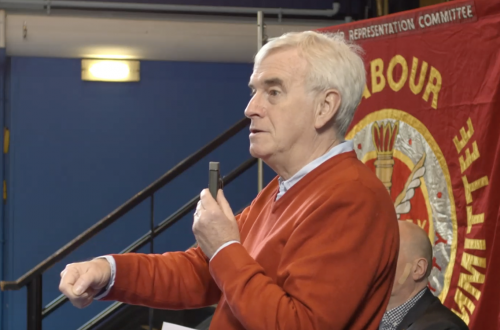This is a cross post by Carl Packman from Left Futures
A lot has been made of Sunderland Football Club’s new manager Paolo Di Canio’s previous comments and actions, that have been expressly fascist in nature. The accusations, that Di Canio now call “ridiculous and pathetic”, include giving roman salutes to A.S. Roma fans (who are known to have a wide Jewish following), a recorded interview in 2005 where Di Canio said he was a fascist, not a racist, and a ‘Dux’ tattoo on his arm referring to Il Duce, Italian fascist leader Benito Mussolini.
He has once described Mussolini as “basically a very principled, ethical individual” who was “deeply misunderstood”. To be rather (too) charitable to Di Canio, when he says Mussolini was misunderstood, this probably refers to the notion that unlike in Germany, Italian fascism was primarily predicated on authoritarianism, not race hatred. Indeed Di Canio says today that, apart from the fact he is not a politician and dislikes taking questions about his previous comments, that he has never disliked anybody – a further denial of his possible racism.
Indeed it has to be said that there are some who like and admire Mussolini for what he was said to have done for Italy as an imperial nation. Silvio Berlusconi is one example (though this doesn’t exclude other reasons why he may admire him). On reading his letters, Berlusconi pointed out that the fascist leader felt Italy almost ungovernable, and that during and after Il Duce Italy had become a strong, blosoming democracy. As Richard Evans pointed out in a review, when a journalist picked Berlusconi up on this point, he replied: ‘Well, it was a democracy in a minor way.’
Berlusconi went one further, telling the Spectator magazine in 2003: “Mussolini did not murder anyone. Mussolini sent people on holiday to confine them”. We know Berlusconi aready has some odd definitions of what a holiday might be, telling some of the 17,000 people who were made homeless after an earthquake hit the Abruzzo region in Italy, that they should see their poorly resourced temporary accomodation as “a weekend of camping”. But all in all Berlusconi displays a not uncommon denialism about the tenure of fascism.
In the mausoleum where Mussolini’s body is interred, as Evans further notes, the visitors booklet has many messages treating the fascist leader almost as a religious one. One message reads: ‘Only under your wise guidance did Italy become a “nation”, a nation that was feared, respected, fruitful and envied’, while another says: ‘If you could see how low our poor Italy has sunk … return, reincarnated in one of us! Now and forever.’
It has been said of Di Canio that his love of Mussolini is based on nothing more than an appreciation of his country becoming a strong nation, an avowed approval of authortiarianism as a means of dealing with an Italy in crisis, which echoes many of the sentiments above. But you have to be willfully ignorant or lie to yourself, and others, if you disregard the racism of Mussolini, and the racist policies that were pursued under his rule during the twenties, thirties and forties.
After Mussolini’s plan to settle a quarter of a million Italians in Ethiopia, it was predicted by, among others, the British Marxist JBS Haldane that the invaders would “interbreed with the Ethiopians“, and thus lead to “a considerable influx of African blood into Italy”. Responding straight away to this prospect, the fascist newspaper Gazzetta del Popolo carried an article entitled “The fascist Empire cannot be an empire of half-castes”.
Aaron Gillette, in his book Racial theories in Fascist Italy, pointed out that Mussolini felt some superiority over countries like America where in some areas blacks had surpassed the white population in number. He had become concerned with the low birth rates of the white race in contrast to the African and Asian races and once said in a 1921 speech in Bologna that “Fascism was born… out of a profound, perennial need of this our Aryan and Mediterranean race”.
Gillette in his book also shows, from Mussolini’s speeches, him saying “The singular, enormous problem is the destiny of the white race. Europe is truly towards the end of its destiny as the leader of civilization” and that only through natality (birth rate control) and eugenics could this be reversed.
This is the man who Paolo Di Canio has a “fascination” with. The new Sunderland manager says he is not a racist, but merely a fascist. But as Mussolini said himself fascism was born out of the need for white superiority. Di Canio has been said to have “thought a lot about fascism” and is clearly not ignorant of what he has signed himself up for, by praising the former fascist leader of his native Italy. That Fifa has not sought to investigate this further sends out a dangerous signal to fans of the game that in some cases fascism will be tolerated.


